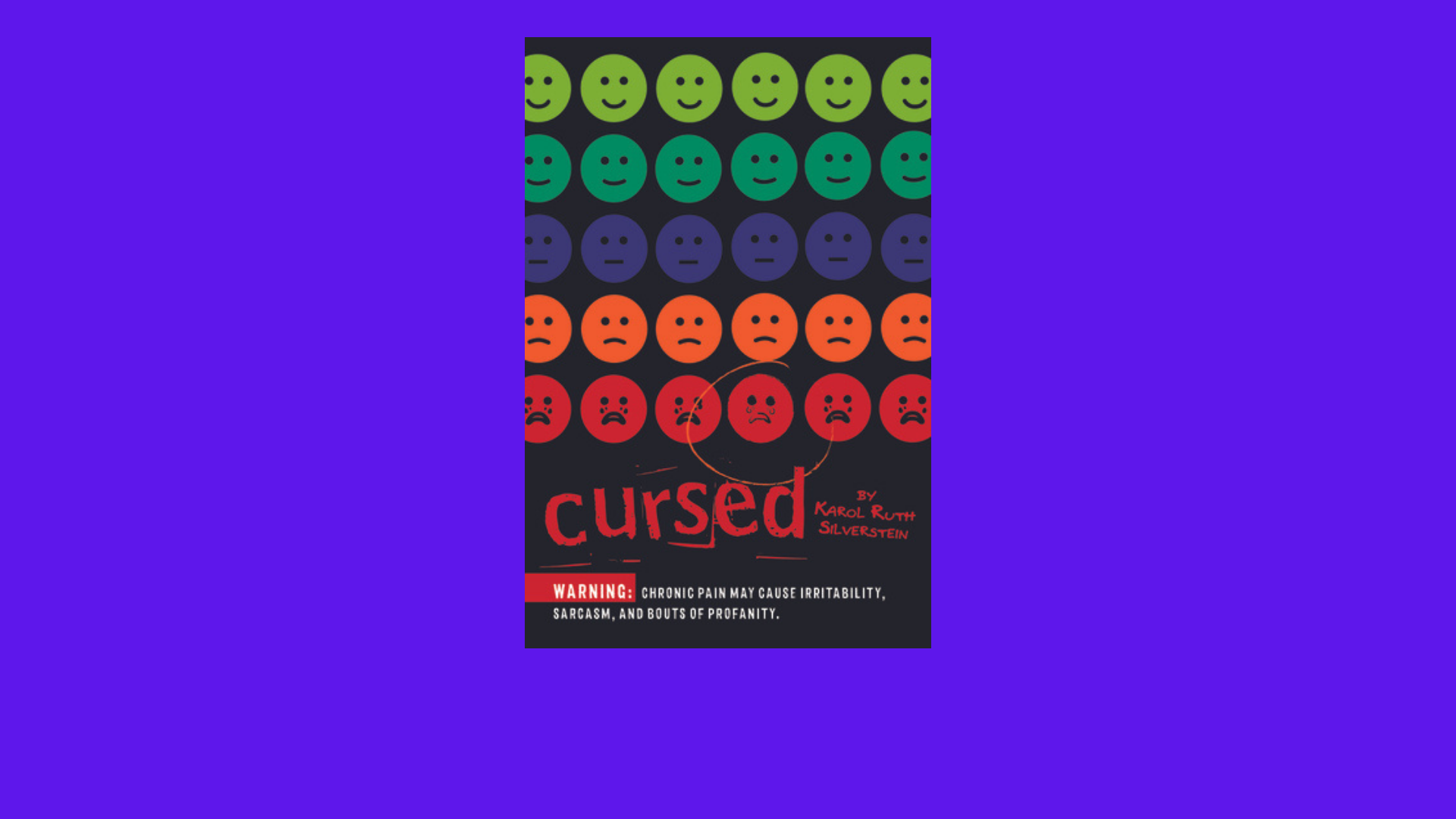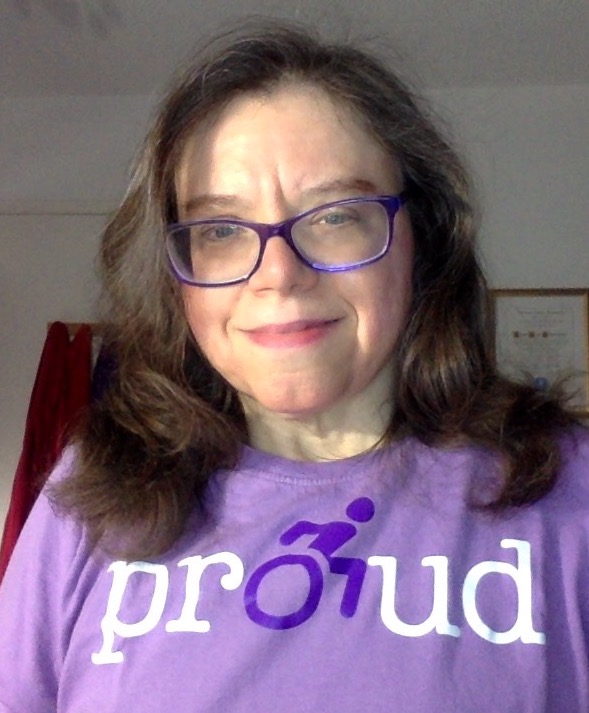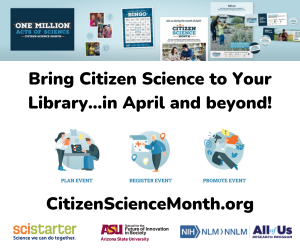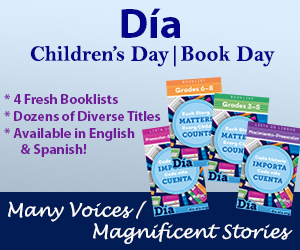Cursed — A Conversation with Karol Ruth Silverstein

Since 2004, ALA’s Schneider Family Book Award has honored an author or illustrator for a title that embodies an artistic expression of the disability experience for child and adolescent audiences. In 2020, the “teen” category prize went to screenwriter and first-time novelist Karol Ruth Silverstein’s Cursed, published in 2019 by Charlesbridge Teen. Readers meet 14-year-old Erika “Ricky” Bloom who not only is dealing with her parents’ recent breakup, but also confronting a months-old diagnosis of rheumatoid arthritis (RA). Silverstein used her own experiences with the same diagnosis at age 13 to shape her “angry” yet determined heroine as she rails against, and ultimately forges her way through daunting physical and emotional challenges. Cursed’s paperback edition will be published by Charlesbridge on July 20.
Catherine Ritchie interviewed the author via e-mail in June 2021.

Congratulations once again on winning the 2020 Schneider Family Book Award and on Cursed’s upcoming paperback release. Now that some time has passed, would you do anything differently today if you were just now preparing the book for publication?
My editor Monica Perez asked me this same question during an author talk at the ALA Midwinter conference earlier this year. As I said to her, I’m really proud of the book we created and had a really positive experience with Charlesbridge. There really isn’t much I would have done differently…except I’d refrain from using “crazy” and “insane” so much, as I subsequently learned that using these terms as stand-ins for bad or out-of-control stuff perpetuates the stigma around mental illness. And guess what? My publisher offered to switch out the instances of these words in the paperback edition! I mean—how awesome is Charlesbridge?!
I’m curious about something I noticed throughout the entire book, which you’ve said in other interviews is set in the present day. The Americans With Disabilities Act (ADA) became law of the land in 1990, but I saw only one passing reference to it in Cursed. Wouldn’t its existence have affected the degree to which Ricky’s school accommodated her mobility needs? I’m thinking especially of the scene between her father and “Principal Piranha,” who seemed grudging when it came to easing Ricky’s daily struggles within the school building. Weren’t her father’s suggestions, in effect, requirements rather than optional actions on the school’s part? It occurred to me that the school should have been more proactive in assessing her needs and proceeding accordingly.
This is a good question, and I’m grateful for the opportunity to address it. While I may have taken some liberties, the idea that the ADA’s existence magically makes accommodations a non-issue for disabled people in most if not all situations is a fantasy. Whether by ignorance, unwillingness or legal technicality, disabled people still face physical and societal barriers all the time.
In terms of my specific story, Ricky—and her parents, for that matter—are so brand-new to the experience of needing accommodations that they don’t even know what to ask for. Ricky is also in hardcore denial and in order to ask for help, she’d have to be willing to admit what’s happening to her. Arthritis is an illness that is incredibly misunderstood as well. TV ads for over-the-counter pain relievers frequently refer to “the minor aches and pains of arthritis,” and for many people, that’s the extent of their experience of what arthritis is. Glorious Grant Middle School could easily have recognized Ricky’s need to take the elevator rather than the stairs while not considering the extra pain traversing the hallway multiple times per day would have caused her.
Cursed’s narrative seems wonderfully “cinematic,” with vivid scenes and sharp dialogue. Was that a conscious goal on your part as a screenwriter? I can so easily imagine this novel being adapted for screens large and small.
Thank you! I consider dialogue to be one of my strong suits as a screenwriter, so that naturally carried over to my prose writing. I didn’t make a conscious effort to be cinematic in Cursed. Again, that was likely just a reflection of my being a screenwriter and having honed those skills over the years.
Another way in which Cursed offers such a rich reading experience are its broad “character demographics,” especially the adults who end up transforming Ricky’s life in such vital ways, and even the cookie-cutter classmates who ultimately prove to be less toxic than she initially thought. Lots of nuance and complexity, even within so-called “secondary” characters. Did that approach come naturally to you?
I grew up in a very diverse area of Philadelphia and attended diverse schools. I’ve always been surrounded by people of various races and cultural backgrounds and, while I’m straight and cisgendered myself, the LGBTQ+ community has always had a huge presence in my life. Ricky’s background is very similar to mine, so it felt natural to people her world with diverse characters. I’ve also come to realize that most of the “villains” I’ve encountered in life have had their own stuff that they’re dealing with. I think it’s important to make your bullies and bad guys three-dimensional, and I find that they’ll often surprise you when you do. For example, I never imagined Mr. Jenkins, who started out as just a snooty jerk, becoming a friend and ally to Ricky. He ended up being one of my favorite characters in the book!
The Schneider Family Book Award is a coveted honor that goes far towards raising awareness of important disability-themed books for younger readers. But aside from this annual recognition, how do you view the “disability lit” landscape these days? If you ruled the Land of Young People’s Publishing right now, what changes would you want to see in this regard, if any?
While disability—-particularly stories written by disabled authors—-is still woefully underrepresented, things are getting better. That said, a large percentage of disability-centered books that have been published are written by white authors, with and without disabilities. There’s definitely significant room for improvement. Changes I’d love to see going forward is more books by disabled authors and much more intersectionality among those disabled authors. Interestingly, the Schneider Family Book Award does not require authors be disabled themselves for consideration, while the Pura Belfre and Coretta Scott King awards place requirements on their nominated authors. Down the road some, as more disabled authors are given the opportunity to bring their authentic and multifaceted stories to young readers, it’d be wonderful to see the shift in criteria for the Schneider Award to specifically disabled creators.
What role has the public library played in your life?
While I was blessed to attend a grade school with a terrific school library, my local library as a kid was the Lovett Memorial Library in Philadelphia. It’s a beautiful building on lush green grounds, with a playground across the street. I spent a lot of summer afternoons there, checking out books which I occasionally read perched in a tree!
What’s next on the writing horizon for you? I’m sure folks are clamoring for Ricky: The Sequel by now.
There hasn’t been any talk of a Cursed sequel, though I must admit that I sometimes hear Ricky and Oliver having conversations in my head! I’ve always worked on multiple projects simultaneously and my current workload is no different. I have two novels in progress, which are very different from each other, and am working on a couple picture book manuscripts as well.
Tell us about the special book drive you’ve organized in honor of Cursed’s new paperback edition.
I’ve had such an amazing journey with Cursed, and the paperback release feels a bit like the denouement (but definitely not in a sad way!). The idea to do a book drive was lovingly “borrowed” from a dear author friend, Lee Wind, who did similar book drives when launching his books. All along, the most rewarding part of Cursed being out in the world has been the kids who face challenges similar to Ricky’s finally feeling seen. I wasn’t aware of any books like Cursed when I was newly diagnosed at 13, and it was extremely isolating. Additionally, I think the people around me, even close friends and family, had no way to truly understand what I was going through. The book drive is a way to get copies of Cursed into the hands of kids who stand to benefit the most.
Anyone interested in participating in the book drive, which runs throughout July, can find details on my website karolruthsilverstein.com (which also features a lot of other Cursed content). The book drive page (karolruthsilverstein.com/2021-book-drive) has a link to my local independent bookstore Children’s Book World (childrensbookworld.com) in West Los Angeles, ordering instructions and info on the charitable organization coachart.org, that will be distributing the donated books. Plus, there’s a “Cursed-tastic” giveaway for one lucky participant!
I’d like to add a final personal note at this point. Cursed resonated with me very deeply: my 30-year-old father was diagnosed with RA in the early 1950s, before I was born, so I grew up watching him cope with its effects, as he continued to support his wife and child despite his massive physical challenges. Karol Ruth, your descriptions of Ricky’s daily pain experiences, life accommodations and the like, even with the help of modern-day drugs and treatments, reminded me vividly of what he must have endured, and thus what a true hero he was every day of his life. I thank you so much for this insight; today’s readers are so fortunate to have Cursed on their radar.
Thanks so much for interviewing me and giving me the opportunity to talk about Cursed!







